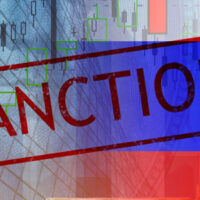
As we wrapped up our most successful Canadian conference to date on Tuesday, I am so appreciative of the commitment of the anti-money laundering (AML) community here to work together to deal with all of the many challenges facing the private and public sectors. In addition, the overall growth of the ACAMS membership in Canada coupled with the excellent work of the chapters, ensures that AML professionals will be well served as long as we listen and follow the strategies offered by these experts—and ACAMS commits to doing so.
To the ACAMS Community:
As we wrapped up our most successful Canadian conference to date on Tuesday, I am so appreciative of the commitment of the anti-money laundering (AML) community here to work together to deal with all of the many challenges facing the private and public sectors. In addition, the overall growth of the ACAMS membership in Canada coupled with the excellent work of the chapters, ensures that AML professionals will be well served as long as we listen and follow the strategies offered by these experts—and ACAMS commits to doing so.
A Call for Accuracy
We know that society looks to the financial sector from time to time when issues warrant. For example, with the recent The Fédération Internationale de Football Association (FIFA) scandal, cyber attacks or other forms of fraud, legislators and media will decide how to respond and report on the financial aspect of these major challenges. As members of the world’s largest AML/financial crime prevention association, we should make sure that any reporting is factual and not slanted. We can do our part by correcting poor reporting, incomplete analysis and a rush to judgment.
If you need ACAMS to weigh in on any inaccuracies on how our profession works, do not hesitate to reach out.
Regards,
John J. Byrne, Esq., CAMS
executive vice president
Customer Requesting Information
Question:
Should we provide the information found on World-Check to the customer or keep it confidential?
We are an offshore bank and one of our customers wants us to process an international wire transfer from his account; however, when we proceeded to scan the beneficiary in World-Check we got a hit. We advised the customer that the transfer could not be processed since the beneficiary is on World-Check. Our customer wants us to send him/her the information that we found in World-Check. Should we provide this information to our customer or should this information be kept confidential?
Response:
The information on World-Check is not restricted as any paying member of the service has access to it. Also, if the information listed in World-Check is incorrect or misleading, the affected party can have the name deleted or a comment added. I do not see a problem with informing your customer about the reasons or problems mentioned with World-Check. However, if you are thinking about filing a suspicious activity report (SAR), you cannot mention—or even suggest—the possibility of the SAR to your customer. In case a SAR is a possibility, it is more appropriate to inform your customer that your policies do not allow the transaction and leave it there.
Gustavo Vianna Biehler
Response:
I would recommend erring on the side of caution and not disclose the information/report to your client. With so many data protection laws and risks of the information being used in an abusive manner, the best thing to do is advise your client that if the third party is interested in furthering this matter by having his name removed or comments appended to his file, he must make direct contact with the parties concerned. Although World-Check is publically accessible upon membership payment, I am sure, although unfamiliar, they would have one agree to not abusing the site or the information obtained from them. So it is best to deal directly with affected party. In response to the SAR report, considering that the transaction was technically not completed, it may just be worthwhile documenting the transaction and keeping it for a period just in case the matter escalates. But SARs, even still STRs, would not be applicable, in my view on this occasion. If there was the suspected offense of money laundering, it is now inchoate because the transaction was not carried owing to an excellent spot check and the institution taking the appropriate measures.
J. Audley Quallo
Response:
In the situation where there is a definite hit on the name (or any other details) in our practice we do not share any information with the client. Neither should you ever mention the possibility of filing a SAR as this would be considered a tip off. Information like this should be confidential and must be managed appropriately. (http://www.fincen.gov/statutes_regs/guidance/html/FIN-2012-A002.html). You can tell your client something general like this: "Per compliance reasons we cannot proceed with this payment."
Nailya Dovletova
Response:
We use LexisNexis, and our user agreement with them specifically states that we cannot share information with third parties. Most services have the same restrictions, check your end user license agreement.
Aili de Almeida
Response:
It depends on what the World-Check match is. If its negative news from a publicly available source or a sanctions list match then there is no reason why you would not be able to share that information without disclosing you got it via World-Check.
I think the real question I have though is what was the World-Check match? Just because there is a hit in World-Check does not mean you have to refuse the transaction. Was it an Office of Foreign Assets Control (OFAC) match on a transaction that touches the U.S.? Another sanctions list that has no jurisdiction over the parties? Negative news that does not impact the transaction? World-Check is a great tool, but a match is not prohibitive unless it identifies a positive sanctions match that forces you to reject or block the transaction. Otherwise it is your call.
Chuck Taylor
Response:
I believe that if you read the fine print on the service of World-Check you use you will read words that may prove that it is not in your best interest to pass on to the client the reasons you are not providing the service. Perhaps you need to revise the policy and procedures that direct your actions in this situation as it should make life easier for you and your staff and certainly ensure you are remaining complaint to your laws that exist in your jurisdiction. I suggest the policy that you are not required to provide any reasons on services not provided and that you are not guaranteeing that you are able to provide the service to your clients. This should be in the terms and conditions when they choose to open the account with you as well.
Lawrence Grant-Lapre
*The question and answers found in this document are excerpts taken from the ACAMS forums. Visit ACAMS forums to read more posts.
Chapter Happenings
ACAMS' Chapter Development Program aims to focus the association's international efforts in anti-money laundering education and training at a regional level. Chapters provide local forums to facilitate discussion, offer education targeting area-specific issues and foster professional networking among ACAMS members.
For more information on ACAMS Chapters please visit the chapters section on www.ACAMS.org or contact Mike Rodriguez at mrodriguez@acams.org.
Chapter Breakfast
June 10, 2015
Salt Lake City, UT, United States
ACAMS Greater Twin Cities Chapter Learning Event (GTC)
Minneapolis, MN, United States
June 11, 2015
BSA/AML Risk Workshop: End to End Process—Part II (NNJ)
Morristown, NY, United States
June 16, 2015
AML and Sanctions Challenges in the Insurance Industry (CNT)
Windsor, CT, United States
June 18, 2015
Marijuana and the Green Triangle (NOCA)
Sacramento, CA, United States
June 18, 2015
2nd Annual ACAMS Boston Summer Networking Event (BOS)
Boston, MA, United States
June 23, 2015
Un-Real Estate—A Media Perspective on Money Laundering in BC
June 25, 2015
Vancouver, BC, Canada
Roundtable Discussion on Various BSA/AML Topics—You Pick the Topics (STL)
Des Peres, MO, United States
June 25, 2015
Illegal Online Gambling—How does it affect your accountable institution?(SAFR)
Johannesburg, South Africa
June 26, 2015
10th Anniversary Celebration
June 30, 2015
New York, NY, United States
Banking & Data Analysis – “AML Safe” Marijuana Banking (ATL)
Atlanta, GA, United States
July 30, 2015
Article
The FIFA Scandal from an AML Perspective
A look into the FIFA scandal investigation and how financial institutions are pivotal players in preventing money laundering.
John J. Byrne's Blog
“I Read the News Today, Oh Boy”*
A day in the life of AML, from soccer scandals to former legislators to terrorists.










